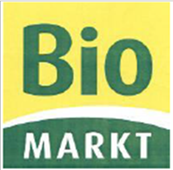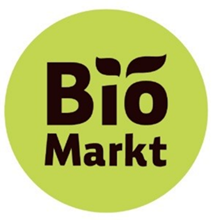Refresh of descriptive organic brand – Bio MARKT
The case: The well-known German wholesaler for organic food and natural cosmetics, “dennree GmbH”, invents the term “Biomarkt” [organic market] for its organic brand. In doing so, they want to distinguish themselves from the frequently used term “Superbiomarkt”. The term Biomarkt is registered several times for products as an organic trade mark in the following design:

Subsequently, “dennree” uses the term ““Biomarkt” together with its “denn’s” organic shops as an organic brand essentially as a stand-alone mark.
In the course of a later refresh of these marks, “dennree” applied for the following sign for, inter alia, foodstuffs, clothing and retail services:

Above the letter “o” is a leaf-like picture element. Its outlines are based on the “denree” logo:

However, the registration of the new logo fails.
Is that surprising? Not really. The reasoning of the General Court of the European Union is almost exemplary. It should be considered a blueprint for any trade mark development. Let us therefore take a brief look at the court’s reasoning:
First, the court analysed the term “Biomarkt”. In German, it directly refers to a sales outlet such as a supermarket or a specialised market for organically or ecologically produced products. Thus, the term also directly describes the goods, to which the potential trade mark relates, as organically or ecologically produced products. The fact that the word “Biomarkt” was a neologism and that the more common German word “Biosupermarkt” is available does not change the descriptive content of the word “Biomarkt”.
Terms that only describe goods or services, without requiring any further thought process or effort in terms of interpretation, do not indicate the origin of the products as from a single company, which is required for a trade mark. The terms must not be used as a way for undertakings to describe their products. The only exception is where, as a result of their use, the public has learned to associate such descriptions with a single undertaking.
The addition of distinctive figurative elements may lead to registration of the trade mark. However, the figurative elements must clearly distract from the descriptive content of the words. This was not the case with dennree’s new organic trade mark. Here, the figurative elements even reinforced the descriptive word “Biomarkt”. Let’s look at this for a moment.
The font, the difference in font size of the different terms and the use of the colours green and brown are relatively banal and simple. They therefore do not distract from the word “organic market”. The leaf elements and the green colour even contain direct references to the organic and ecological nature of the products. The correspondence of the leaf above the “o” with the “dennree” logo is too slight to mask the ecological reference of the leaf.
None of the graphic elements therefore altered the descriptive meaning of the organic mark applied for in respect of the goods concerned.
Finally, “dennree” could not rely on the previous registrations. Each trade mark application must be examined in isolation. Explicitly and perhaps also cryptically, the court referred to its case law, according to which one cannot rely on a possibly erroneous application of the law in favour of another in order to obtain an identical decision.
Court of Justice of the European Union, 23 July, 2022, T-641/21.
Learnings: Trade marks must not consist exclusively of signs or indications which may serve, without any effort of thought or interpretation, to designate the characteristics of the goods or services. If this is the case, the client must first be able to demonstrate that such a sign is a means of distinguishing a particular company in order to register it. A figurative element may help such a mark to be registered before that. To do so, however, it must clearly detract from the descriptive content. Under no circumstances may it reinforce the description. Comparable previous registrations will not assist. They could even be endangered by the new application.